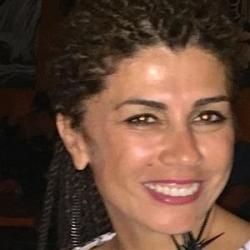
Amid news of Ukraine’s unfolding refugee crisis are reports of racism directed against some people as they attempt to cross borders and escape Russia’s invasion. To University of Guelph psychologist Dr. Saba Safdar, those instances are examples of an ethnic divide and double standards toward refugees.
A professor in the Department of Psychology in the College of Social & Applied Human Sciences, Safdar is a cross-cultural psychologist who studies the adaption process of immigrants and refugees, and their resilience and challenges.
“Unfortunately, throughout history, oppression and violence have been taken seriously when they have impacted white groups,” she said, adding that “help is more copious and expansive when there is injustice toward a European nation than when there is injustice toward other groups.”
Examples of other refugee crises the world has witnessed throughout the last 20 years include the Syrian civil war, the Iraq war, the Rohingya genocide and the Venezuelan conflict, Safdar said. The European Union and other Western nations have “mobilized help to a greater degree for Ukraine than for other crises which happened, and are happening, outside of Europe,” she added.
In-group and out-group divide
That mobilization behind the help offered to Ukrainians said Safdar, “is partly a reflection of the in-group and out-group divide.”
She explained that when refugees, or victims of war, “are perceived as members of the in-group, or ‘one of us,’ there is a pattern of favouring own group members.” That manifests in positive evaluations, resource allocations and engaging in behaviours that directly help those members, she said.
When members are perceived to belong to the out-group “there is a tendency to view them negatively and to even blame them for their own circumstances.” That negative bias, she said, is based on the view that the out-group members take away the in-group members’ resources.
Shared responsibility
Safdar said social scientists, legislators, activists and politicians “all have a responsibility to raise awareness about the double standards that exist when helping those in need.
“It is very important to assist all refugees and victims of war. People’s lives are valuable regardless of their nationality and skin colour. Indeed, there is no hierarchy of oppression.”
Contact:
Dr. Saba Safdar
ssafdar@uoguelph.ca
